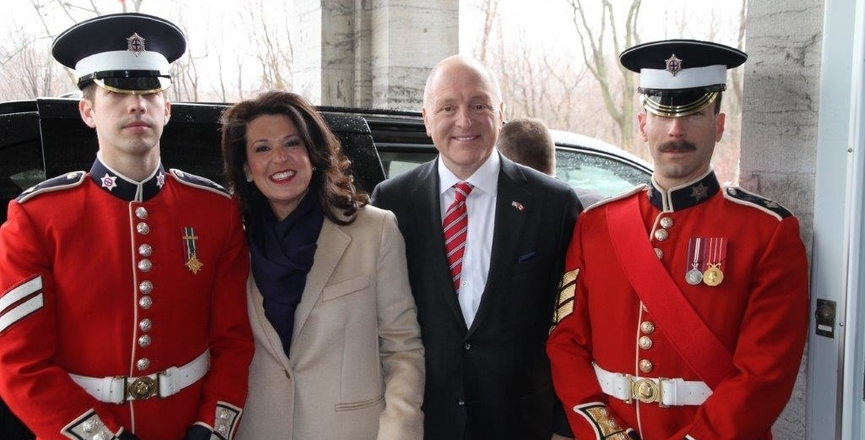There’s a small but important update to the story about Jason Kenney’s conspiracy theorizing in Washington at the end of last week.
According to the man who served as the United States’ ambassador to Canada from 2014 to 2017, nothing was ever said to him that would suggest there were ever any talks between the Obama administration and anyone close to Prime Minister Justin Trudeau about then-president Barack Obama’s decision not to allow completion of the Keystone XL pipeline.
This is important because of the Alberta premier’s claim at a forum put on by the Wilson Center in the U.S. capital Friday morning that an official close to Trudeau conspired with the Obama White House in 2015 to engineer “a co-ordinated surrender” by Canada on the Keystone XL decision.
“As the former US Ambassador to Canada I am unaware of ANY conversation related to acceptance of an anti KXL decision by either the Harper or Trudeau governments, their advisors, or their staff,” Bruce Heyman tweeted Friday evening from Chocholá in Mexico’s Yucatán state.
And one would think that an ambassador, whose job it is to keep his ear to the ground for what’s being said and done in the country of his posting might have picked up something if the phone lines had been buzzing between the Prime Minister’s Office, whoever happened to be occupying it at the moment, and the White House.
Apparently not.
Heyman’s remark is interesting on two counts, because it suggests Kenney’s commentary at the respectable Washington think tank linked to the venerable Smithsonian Institution was either a delusion or a fabrication, and also because it indicates Stephen Harper’s PMO wasn’t as aggressive in dealing with the Americans as Kenney would like us to believe.
According to Kenney’s version of events, Gerald Butts, then Trudeau’s principal secretary, engaged in “back-channel conversations” with the White House, presumably in the two days between when Trudeau was sworn in as PM and president Obama’s announcement of his decision, so “that there would be no negative reaction.”
Furthermore, said Kenney, who may have been working up a head of steam with the encouragement of Saskatchewan Premier Scott Moe, who was with Kenney on stage, “I think there’s a reason why the Obama administration did not veto the project in the several years that prime minister Harper was there waiting for an approval, because they knew there would have been a very serious diplomatic conflict with Canada.”
Heyman’s 33-word commentary suggests both claims are baloney.
Well, Heyman was a prominent supporter of Obama before he was appointed ambassador to Canada, so no doubt the Trumpublicans with whom Kenney was hobnobbing before he made his remarks would suspect something was up.
More likely, though, the retired ambassador was just annoyed enough when he heard about Kenney’s storytelling to set aside the niceties of his former diplomatic profession long enough to debunk the premier’s creative commentary.
This is not the first time the outspoken former ambassador has made news of interest to Canadians since he left his post in Ottawa on January 20, 2017.
Last month, he told media that U.S. President Donald Trump disregarded close allies like Canada when he decided to have Iranian Major-General Qassem Soleimani assassinated in a drone attack on January 3.
Heyman said the killing elevated Trump’s disregard for the United States’ friends to a new level: “It put Canada and others in a fairly difficult and complex situation on the ground.”
David Climenhaga, author of the Alberta Diary blog, is a journalist, author, journalism teacher, poet and trade union communicator who has worked in senior writing and editing positions at The Globe and Mail and the Calgary Herald. This post also appears on his blog, AlbertaPolitics.ca.



